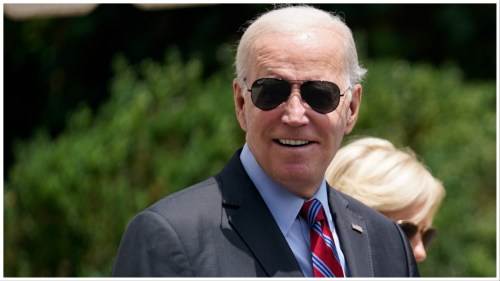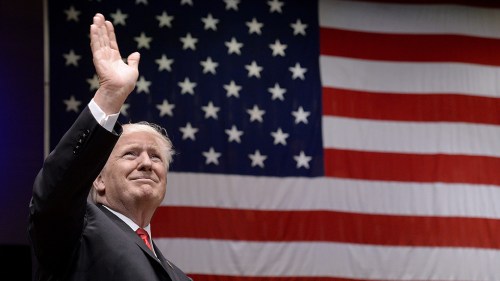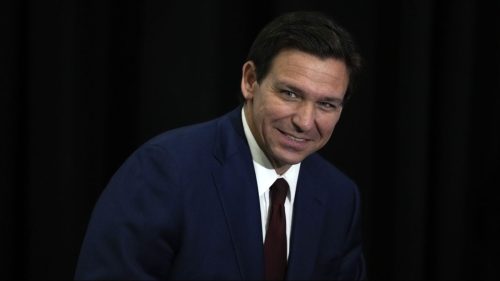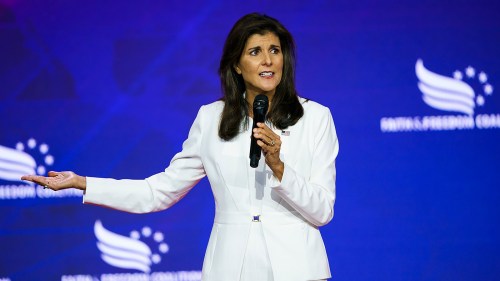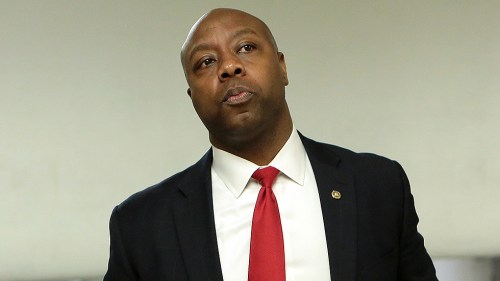Harris bid for Oval Office puts spotlight on foreign policy track record

Vice President Harris has served as a key surrogate for President Biden on the global stage, but her new bid for the Oval Office will bring into sharp focus the areas of foreign policy where she will seek to advance his vision — or break from it.
Harris has so far received key endorsements from progressive lawmakers who have been openly critical of how Biden’s support for Israel has impacted Palestinians, the most divisive foreign policy issue among Democrats right now.
And Republicans are certain to link Harris to their fierce criticisms surrounding immigration and the policies around the U.S. southern border. Early on in Biden’s term, he appointed the vice president to lead the administration’s tackling of the root causes of migration in Central America.
While Harris has rarely grabbed the spotlight representing Biden’s foreign policy priorities, she has been a diligent representative abroad: traveling to Europe to show support for Ukraine and commitment to NATO; dispatched to the Middle East to engage on the Israeli and Palestinian conflict; and putting in face time with U.S. partners and allies in Asia and the Indo Pacific as a counter to China.
Harris has avoided, some, but not all of Biden’s baggage with Palestinian supporters
Advocates for a tougher U.S. policy towards Israel point to Harris’s March speech in Selma, Ala., as a promising example of the vice president addressing the plight of Palestinians at a time when Biden was under increasing pressure to hold back weapons deliveries to Israel over the toll of death and destruction in the Gaza Strip amid its war against Hamas.
“The Israeli government must do more to significantly increase the flow of aid [to Palestinians]. No excuses,” Harris said to applause.
“She really lifted up the humanitarian crisis in Gaza in a much more aggressive way, much more critical of the Israeli government’s approach there. I think that was noticed by everyone,” said Matt Duss, executive vice president for the Center for International Policy and a former foreign policy adviser for Sen. Bernie Sanders (I-Vt.).
But it’s unclear if Harris’s speech represented a major policy difference or only a shift in rhetoric. Stepping forward as a candidate for the Democratic presidential nomination, she now has an opportunity to articulate what she wants to do differently, Duss said.
He added it’s an important signal that she will not attend Israeli Prime Minister Benjamin Netanyahu’s speech to Congress on Wednesday. A number of Democratic lawmakers have announced they will boycott the speech, largely progressives.
“I hope and expect that she and her team will engage with the whole array of voices that make up the Democratic Party, and that includes its growing progressive [wing].”
Harris is a known quantity for Europe, NATO
Harris’s appearances on the global stage have rarely made headlines, but as vice president, she has steadfastly shown up to key meetings and gatherings with America’s European and NATO allies, her presence a message of U.S. support for the transatlantic alliance, as well as for Ukraine.
Biden dispatched Harris to Europe in February 2022, in a public warning to Russian President Vladimir Putin against launching a full-scale invasion of Ukraine, at the Munich Security Conference. She also met with Ukrainian President Volodymyr Zelensky at that time, and a meeting that most leaders expected to be the last time they’d see the Ukrainian leader alive.
In March, Harris spoke again at the Munich Security Conference, where she reaffirmed the U.S. “ironclad” commitment to NATO.
Former President Trump has threatened to withdraw from the alliance and has raised the possibility of holding back commitments to the mutual defense pillar of the treaty.
“She understands that a strong, secure, innovative, prosperous Europe benefits the United States, and vice versa — and that in a challenging world, America is stronger with allies,” said Dan Baer, former U.S. ambassador to the Organization for Security and Cooperation in Europe and advisory board member of Foreign Policy for America.
In June, Biden sent Harris as the most senior official to represent the U.S. in Switzerland at a peace summit organized by Zelensky, working to rally global support to pressure Russia to end its war in Ukraine.
“America stands with Ukraine not out of charity but because it is in our strategic interest,” Harris said.
Immigration and the southern border
One of Harris’s biggest vulnerabilities throughout her vice presidency has been her role in immigration policy.
Appointed to craft the Biden administration’s policy on root causes of regional migration, Harris was quickly dubbed the “border czar” by Republicans, though the border was outside her portfolio.
Hounded from the right, Harris also managed to anger the left in 2021, when she took her first overseas trip as vice president to Mexico and Guatemala, and delivered a now-infamous message to would-be migrants: “Do not come.”
If she wins the presidency, Harris will deal with Guatemalan President Bernardo Arévalo, who weathered attempts to derail his accession with support from the Biden administration.
But all eyes will be on the potential relationship between Harris and Mexican President-elect Claudia Sheinbaum, the first woman to win the Mexican presidency, a role she takes over Oct. 1.
The pairing of North American women leaders would certainly draw global attention, and could help both incoming leaders solidify their domestic positions.
Sheinbaum has already butted heads indirectly with Trump, who at a rally in Michigan on Saturday erroneously claimed that current Mexican President Andrés Manuel López Obrador — “a great guy” — is no longer president and mocked Marcelo Ebrard, a former foreign minister who is slated to be Sheinbaum’s trade czar.
Sheinbaum, who called Trump’s comments profane, would likely have much smoother interactions with a President Harris.
Such a relationship with the left-leaning Sheinbaum could make Harris’s life easier when dealing with the region’s leftist governments, from neutral powers such as Brazil to U.S. rivals including Cuba and Venezuela.
The region’s right-leaning leaders, such as El Salvador’s Nayib Bukele and Argentina’s Javier Milei, are unlikely to strike a close relationship with Harris, but their countries have a smaller impact in U.S. interests in the region, from trade and investment to migration.
Harris a stable force on US policy in Asia
Another area where Harris has sought to make inroads is in Asia, promoting Biden’s strategy to deepen bilateral and multilateral relationships in the region as a counter to China’s overwhelming influence.
Both Democrats and Republicans have identified China as the most challenging threat to U.S. global superiority and a threat to what they describe as the international, rules-based order.
The Biden administration’s strategy has been one of engagement with China to avoid conflict, but building deeper relationships among Asian countries, both bilaterally and multilaterally, as laying out the U.S. as a better and more reliable partner than Beijing.
Harris was Biden’s delegate to the ASEAN [Association of Southeast Asian Nations] summit in Jakarta, Indonesia, in September, marking her third visit to the region over her term in office, and her fourth to the Indo Pacific.
Gregory Poling, who directs the Southeast Asia program at the Center for Strategic and International Studies, told The Associated Press at the time that Harris was “an effective avatar for the administration,” but still had some experience to gain.
“She didn’t knock it out of the park,” he said. “It’s clear she was new to the issues. But she’s put in the work.”
Senate experience could be a positive
Foreign policy is often held up as the rare area where Democrats and Republicans put partisanship to the side to project unity on the global stage, a tradition that was severely strained under Trump, whose most loyal supporters in Congress have continued to frustrate Democrats’ efforts at cooperation with Republicans during Biden’s term.
Harris had four years in the senate, representing California, before she became vice president, serving on the Intelligence and Homeland Security committees.
And she could appeal to centrist, foreign policy and national security lawmakers from both sides of the aisle.
“I do think this is a moment where our allies and partners around the world, many of whom have been represented here in the last few days, and anxious Americans, need to be reassured that there are strong bipartisan relationships in the Senate,” Sen. Chris Coons (D-Del.), a senior member of the Senate Foreign Relations Committee and key Biden ally, said during the Aspen Security Forum last week.
“It is important that folks realize the Senate is a center of stability, in particular on National Security and foreign policy.”
Copyright 2023 Nexstar Media Inc. All rights reserved. This material may not be published, broadcast, rewritten, or redistributed. Regular the hill posts
